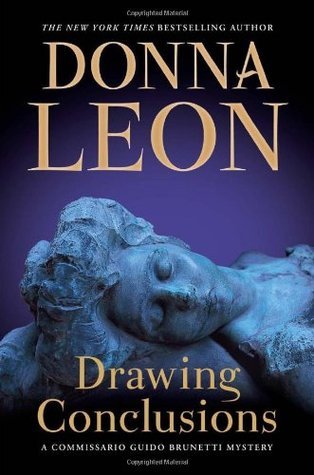What do you think?
Rate this book


260 pages, Hardcover
First published April 5, 2011
Guido Brunetti, Commissario di Polizia of the city of Venice, sat at dinner across from his immediate superior, Vice-Questore Giuseppe Patta, and prayed for the end of the world. He would have settled for being abducted by aliens or perhaps for the violent irruption of bearded terrorists, shooting their way into the restaurant, bloodlust in their eyes.OK, so the story progresses and a woman is discovered dead, as is the way of murder mysteries. But was the woman murdered? This turns into a dilemna for Brunetti as the autopsy reveals she died of a heart attack. Was she frightened so badly that the heart attack ensued? If so, who was responsible for frightening her so?